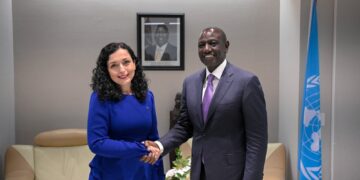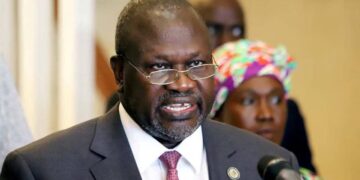By John Ikani
In a move seen as challenging Western influence in Africa, Russia is reportedly seeking control of uranium assets currently held by a French state-owned company in Niger.
Sources familiar with the situation, speaking on condition of anonymity, claim that Rosatom, Russia’s nuclear giant, has initiated contact with Niger’s military leadership regarding the acquisition of assets belonging to Orano SA.
A Western diplomat stationed in the region suggests the discussions likely focus on obtaining mining permits. Notably, Niger contributed roughly 4% of global uranium mine production in 2022, according to the World Nuclear Association.
Following a military coup last July that toppled Niger’s pro-Western leader, the nation joins a growing list of African countries, predominantly under military rule, that have strengthened security ties with Russia.
This development has opened doors for Moscow to pursue mining interests, mirroring its efforts to revive its Cold War-era presence in Africa.
A key strategy appears to be capitalizing on widespread resentment towards France’s long-standing influence in its former colonies.
“Russia has been actively expanding its economic, diplomatic, and military partnerships in Africa, particularly since the Niger coup,” explains Mark Hibbs, a Berlin-based nuclear analyst affiliated with the Carnegie Endowment for International Peace.
“This trend aligns with their view of Africa as a strategic region ripe for investment opportunities. Rosatom, working in tandem, has been diversifying its uranium investments across the continent.”
Specific details regarding the number of assets Rosatom seeks in Niger remain unclear. The source in Moscow characterizes the discussions as preliminary, with no formal negotiations initiated and the terms of any potential transfer yet to be defined.
Orano, the French company currently holding majority stakes in the operating companies of Somair (an open-pit mine), Cominak (a currently inactive underground mine), and the Imouraren project (suspended since 2015), according to their website, denies any knowledge of discussions between Niger and Russian entities.
The company has maintained communication with Niger’s new leadership since the July coup. Efforts to reach Niger Prime Minister Ali Mahamane Lamine Zeine’s office, Rosatom spokespeople, the French presidency, and the Kremlin for comment proved unsuccessful.



































